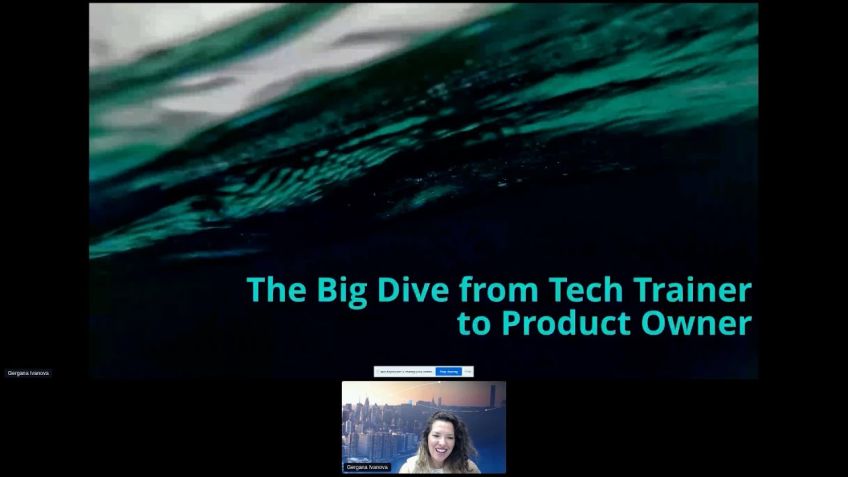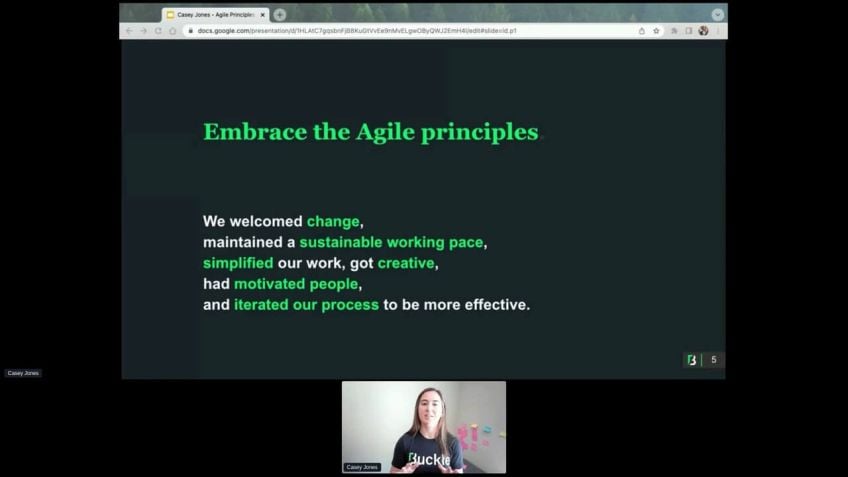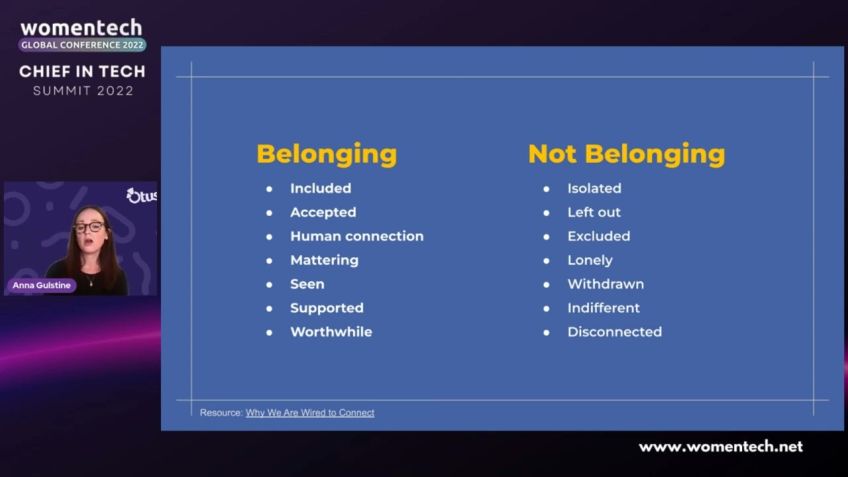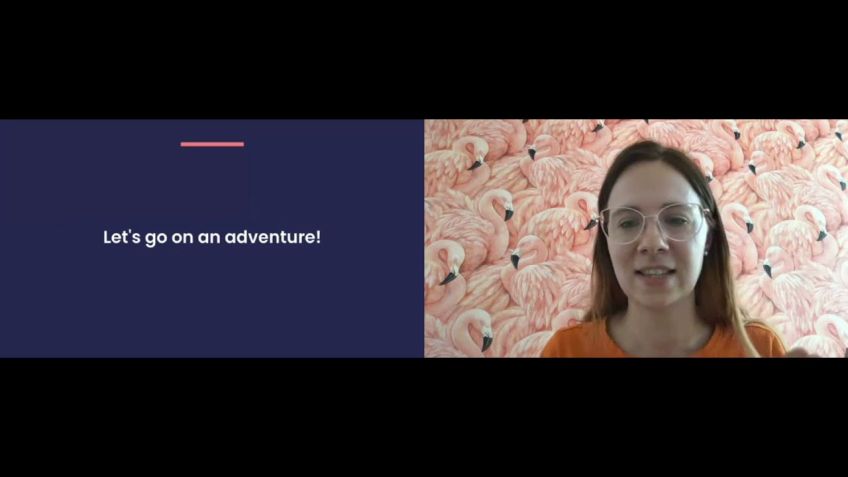What to do when you encounter problems with your Scrum adoption by Joanna Płaskonka
Reviews
Welcome to My World of Agile and Scrum
Hello there, I'm Janna Poona, currently nestled in the vibrant city of Warsaw, Poland. Being deeply entrenched in Scrum and Agile workflows, I aim to share my experiences, tips, and insights to assist you on your Scrum journey. But today, let's delve into the less glamorous side of these methodologies - facing challenges and overcoming them.
Scrum: Expectations vs Reality
Scrum and Agile have been marketed as the go-to frameworks for team success. But one must remember, it's not a one-size-fits-all solution. Consider Scrum as a mirror reflecting your team’s weaknesses and strengths. Embrace uncomfortable truths and utilize them as the basis for improvement. Ultimately, an incorrect approach or unrealistic expectations can lead to disappointment and frustration. Therefore, before embarking on a Scrum adoption, ask yourself why? What is the motivation behind it?
Choosing the Suitable Methodology
Think of Waterfall and Scrum as tools in a toolbox, each designed for different types of tasks. While Waterfall can prove to beneficial for simple or complicated problems, Scrum thrives when tackling complex issues. Therefore, it’s essential to navigate through your problem domain to select the appropriate tool.
True Understanding of Scrum
It's not uncommon to witness misinterpretations of Scrum, leading to flawed implementation. Take the initiative to learn about it, gather knowledge from reliable sources, or find a mentor. Remember, it's not just about understanding Scrum; it's about your willingness to unlearn existing habits that may obstruct your Scrum journey.
Creating the Right Environment
To truly flourish, Scrum needs a conducive environment, underpinned by supportive leaders who adhere to Scrum values. Bear in mind, everyone within an organization plays a crucial role in creating a successful Scrum team.
The Role of a Scrum Master
A well-informed, appropriately instructed Scrum Master is critical for your team’s success. Their roles extend outside the team boundaries, liaising with decision-makers to resolve impediments, improve processes, and achieve a higher level of effectiveness. However, it's essential to grant them the necessary authority to execute their roles efficiently.
Tips for a Successful Scrum Journey
- Make Conscious Decisions: Scrum isn't about embracing chaos; rather, it's about making deliberate choices based on your team's needs and challenges.
- Set Reasonable Expectations: Miracles aren't part of Scrum’s purview. Expect challenges and use them as stepping stones toward improvement.
- Understand Scrum: A sound understanding of Scrum is fundamental to prevent misunderstandings and foster smooth implementations.
- Create Supportive Environment: A conducive environment with supportive leaders and departments can pave the way for agility.
- Continuously Learn and Unlearn: Be open to new learnings and unlearning outdated habits or beliefs that no longer serve you.
- Support the Scrum Master: Give them the space and authority they need to carry out their roles effectively.
Connect With Me!
I'm always open to sharing insights, solving challenges, or even having a one-on-one to assist you in overcoming your biggest Scrum hurdles. Please feel free to reach me on LinkedIn, where the learning and discussions continue. Thank you for your time and remember - on your Scrum journey, the only constant is change!
Video Transcription
Once again, welcome, welcome. My name is Janna Poona. I'm currently located in Warsaw Poland and today is uh quite hot day. The weather is quite nice. Um And I'm saying, thank you, greetings with uh uh with some ideas today uh to inspire you um in my professional career.Uh I'm focused um uh another person from Germany. Hello, I hope the weather is good in my, in my professional career. I've been working a lot with the teams uh creating products, delivering solutions. Um I used to, to be in the, in the engineering role and for five plus years already, uh I moved into um more Scrum master agile coach, uh Gile consultant role. Um And today I would like to share you with some of my tips that you might find useful. Uh when you decide to try to adopt Scrum and you get disappointed. But you know what? I know that it's quite common that many people advertise Scrum and the Gy. And they say, hey, this is something valuable for you. Hey, this is something that you may give it a try and yeah, as a Scrum trainer, wonderful news. Please give it a try, you know, uh I, I will also advertise it but let's focus a bit today on this dark side of this whole story, the problems will appear dears, there will be different problems.
And if you, after a few tries will look like this guy, you will get frustrated, you will get disappointed and your thinking will go through. Oh my God, why I, why have I done it to myself? Uh Well, yeah, it happens and it happened to me many, many times now. Uh when I uh when I uh uh got my f my different feedback from people. When I got my experience, I know that some of the things may uh may be done different. Um So let's start today with some questions for you. So when you start Scrum adoption, what is your motivation? Why, why did you uh do that? Do you have any idea why people start Scrum adoption? Well, I heard that it might be because of promise that we will be quicker. There is a famous book uh by I think Jeff Sutherland, like the, the Scrum is the art that will help you do uh more work, you know. So when the managers, when c level executives, when some leaders here there will be more work done in the same amount of time or even in less. Oh my God, I want it. I want it. Um Yeah, they, that's, thank you. Thank you, Laura. They hear pros, they hear a lot of things that yes, it will make things better, easier, faster, more efficient. Uh you will gain transparency. Uh You will gain agility, you will have clear understanding of product vision. Yes, yes.
But the case is that if you create expectations like yay, it will be all better. You will be disappointed, you will fail because the Scrum, I like to describe it in the way like this is the holder for a mirror. So if you have some uh dots on your nose and you take this mirror, you will see it. So Scrum will show you, hey, there's something on your nose. Maybe you would like to do something with that. It might be even uncomfortable to hear that. But Scrum is designed to show you problems. Some people claim this is like your mother-in-law or a colleague that is, you know, bru brutal, brutal when speaking about things. So yeah, if you start with wrong expectations or you create expectation like, hey, it will be like going to the moon and the results, fantastic results will appear just like that. You may get very disappointed if you start with that. Another thing. Did you choose the proper tool?
So some people claim that waterfall, for example, is bad and Scrum is great. And you know what, let's look at the metaphor of the meal. So w when you go to the restaurant, do you say that the spoon is great? But the knife is bad. I don't think so. It's just a different tool for solving different problems. So what happens sometimes is that people skip this first phase, which I personally love to start my collaboration with. So at first try to understand whether your problem that you are trying to solve belongs to complex domain according to either uh Kain um framework or Ralph Stacey model about complexity. Because if it's not complex, it means that you do not need the spoon, the spoon will be uh something too much for you. You need a different tool. So in that sense, I want to say it out loud, Waterfall is great but not necessarily for complex problems, for different problems, for problems that are for example, simple or maybe complicated maximum uh according to those mentioned uh earlier frameworks. So I heard yesterday during one of the presentations, uh I I love that one and um the citation um the the words that the lady used were as follows. Um agile means doing things differently with the same passion.
So yeah, if you waterfall is OK for you, if Kanban is better for you use that tool, stay with this passion to creating great products, to delivering great solution, still be there and accept that maybe this is not the tool for you. Another thing that I observe quite often, one side of the coin is that people think they understood Scrum and they start implementing and things went wrong and it's like, hey, hey, hey, what's wrong? What's wrong? Definitely. The problem is not in me while I see it as a very uh mind opening tool to ask yourself twice, even three times. Do I um do I get it right? Do I really understand that this behavior is Scrum or this practice supports Scrum. So how to uh how to check that, try to read about it. Go to training, find a mentor. There are many great people who already gained the knowledge, they can share it. There are great talks, please use for the reliable source of information and make sure that you have this knowledge. Because if you don't, it's like taking completely new tool and you expect yourself that you already know how to do it. Well, the reality might be different. And the other side because I started with, there are two sides of the coin. Scrum is my dears domain atos. What does it mean?
Well, it means that again, it will help you take this mirror, look for problems from different angles, but the domain knowledge that you have to gain views on your. So do you know any examples of um of domains of businesses where Scrum is claimed to be successful? Could you please share some ideas, software? Yeah, great, great example. Any others uh huh. Website development. Mhm So we have one example, general software development, drug development. Thank you very much. Yes, I also heard about such examples. My colleague is working closely with the Scrum team where the product owner is a doctor because they are working on solutions related to medicine. My personal example is from robotics. So Scrum is not saying how to be an expert in robotics, how not how to become an expert in medicine. Scrum is sh showing you the path and you have to follow that uh that path and learn uh learn continuously to improve your processes, to improve your knowledge. This domain knowledge is on you. Trump is not giving that solution and complementary thing that is also in my opinion, not so obvious. Are you ready for unlearning? What we are going to unlearn well, habits, beliefs, many things that you already have in your head might not support Scrum might be against. And when adopting Scrum, you have to be ready for facing those beliefs, facing those ha those habits and letting them go.
This will be uh this might be in my personal opinion, a huge, huge step in your path. It's like uh you open yourself for unlearning, which means that you open also yourself for learning things differently and learning new things. Thank you for this comment. Yes. Yes, I will share my uh my definition of Scrum. So Scrum is not a framework to uh do to, to deliver it projects or it products or in general, it's not about programming. This is a business framework that is designed to uh mitigate the risk to work effectively, to manage the risks and resolve ambiguities, to maximize value of the product of the solution that is uh being worked on. So, yes, thank you very much. It's not about technology, it's about solving business problems and Scrum is very customer focused. OK. Moving forward, let's say that OK, you went through uh through those questions that we already mentioned. Now, did you create the right environment? The Scrum to, to be able to work uh to work properly to become a real professional? Scrum needs a special cul culture and needs a special environment. And although if you open Scrum guide, you will not find many information or maybe even at all about leaders about um C level executives, about finances, about hr but all those people who belong to your organization, they are important, they are still there.
Scrum is not describing them on purpose. If you look at Scrum um as a framework, uh it means that how those people will help you create valuable uh products valuable uh will help you create um solve complex problems and create value. You have to figure it out and those people also have to change. So by right environment, I mean, do leaders support Scrum values? Do people around Scrum teams help them become effective Scrum teams? This is a great area for uh Scrum Masters to work outside of their teams because you know, if you know how Scrum works, Scrum master is a member of Scrum team, but it is expected for them to work outside of the team to help find global optimization of processes to help improve this effectiveness on the higher level.
OK. And when it comes to Scrum musters, I promised uh some, some tips and some my personal ideas about Scrum musters. So first question, do you have a real Scrum muster? And by real Scrum master, I mean, this is the person that has knowledge has proper attitude and is prepared. What happened in some of the companies I worked in? Well, they just created Scrum Master from people who were not ready. Maybe even sometimes they have wrong um wrong understanding of their role and it actually caused damage to the teams. This is this example that some of the people describe like if your Scrum master is not doing you any harm, it means that they are al already helping you. Well, oh my God, this is a huge misunderstanding. Scrum Master is a valuable Scrum team member. Scrum guide is really short on purpose and it de it describes all the things of the elements of the framework that should bring value. So if you don't have a risks, gram master, you either may find them different role, different accountability in your Scrum team, maybe they will become developers, but maybe it's also because they are lost. And I also love this approach like not asking only about what your Scrum master can do for you. But also what you can do for your Scrum Masters, they are also human beings in this team, they might also benefit from collaboration and they may also grow with you.
OK. So we are delivering product we are developing as a team in Scrum. We are also developing ourselves as individuals. Um Sophia, it's great that you have met great Scrum masters. It's great. I'm I'm really, I'm really happy that you see. See that, yeah, Scrum Masters, curious patience, enabling, enabling agility, supporting, creating this environment, working with leaders. This is great things for uh for Scrum masters. Uh I also been there. I started as a Scrum master with very little knowledge a long time ago and I'm guilty too.
But you know what? Learning and unlearning, that's important part of the story. And last but not least you may have wonderful well prepared trained, super motivated Scrum master. But if you do not allow them to do their job, ah I see you mentioned authority. So if they are not uh given this authority that yes, you can become this change agent, then I'm sorry, don't be mad at your Scrum master. So Scrum Master are in in some um sense, a specific specific accountable here because they need to make this change. They need to contact different people. My best experience was when I was allowed to go to CEO and talk with uh her, talk with him and uh raise some problems, look for solutions. That's the best, uh that's the best experience for me. So the leaders, if you have such people tell them that if you have Scrum Master, this is the person that it's worth to talk to because they may see a lot. They may have great insight from the teams. They may have even impediments, very direct impediments that can be worked on. And if decision makers will collaborate with Scrum master, great things may happen. This is what what I wish all Scrum masters can do so shortly. Tips and tricks first, please make conscious decisions.
Scrum is not about chaos, doing business in general. I wouldn't say that this is chaos. It should be conscious decision process. So um if you realize that it's not bringing value, maybe it's not for you and it's OK. And I'm saying it as a person representing scrum.org, we see that it does not make sense to push everyone to use it. If they are better tools start please with reasonable expectations. So if you expect miracles, uh uh this is not the door that you, you should uh knock to Scrum will help you realize many different interesting things, most of them will be challenging. So if you are looking for ideas, what you can improve, yes, the Scrum will most likely help you when you are in this complex world. Good understanding of Scrum, I would say always a must have. So this is the source of many misunderstandings, many tough discussions if you can invest in learning, especially at the very beginning to make sure that people know what is expected. Please do that. Support teams to create conditions. We discussed that this is a role of leaders, a role of different departments to collaborate with Scrum teams to create great conditions for agility, continuously learn and unlearn.
So there will be things that you will be gaining knowledge about and there will be things that you have to forget. You have to accept. You have to let them go. That's the life in the complex world. And last but not least, your Scrum masters can help you if they need space, give them the space. If they need uh some kind of support, coaching, work with them, they can grow with you. OK? So that was everything that I wanted to say. And if you have some interesting uh problems to work on, I will be happy to, to help you. Um Please feel free to contact me with some contact information. Uh I will be glad to, to give you some tips. I will be happy to uh to share some insights. We can even have some uh some one on one to solve some of the biggest uh challenges that you face. Thank you very much. That was a big pleasure to be here. Thank you very much for organizer uh organizers to, to make this happen. Uh It was a big pleasure and honor. Thank you very much. Of course, feel free to, to reach me on linkedin. I'm happy to connect with you and uh continue discussions afterwards.





No comments so far – be the first to share your thoughts!